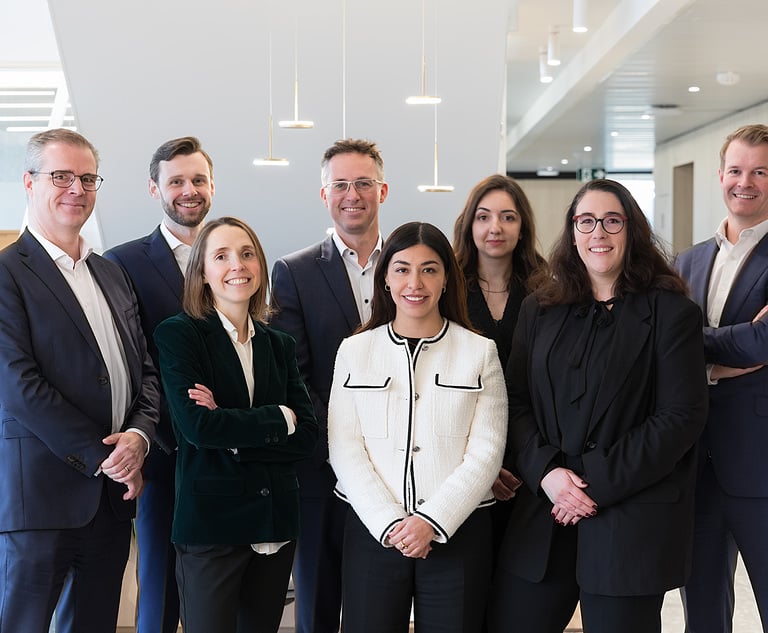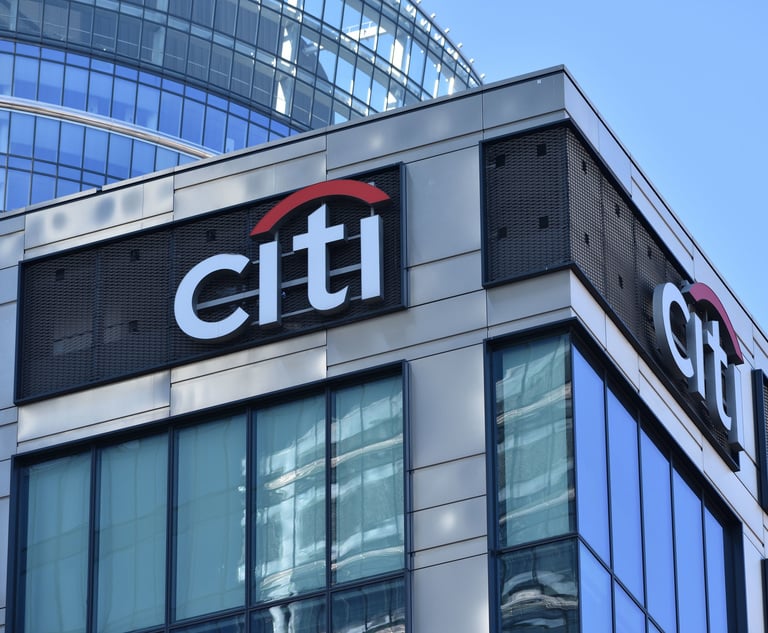As well as carrying out day-to-day legal work, sports lawyers have another daily, somewhat irksome task – attempting to process the steady flow of CVs from budding young sports lawyers.
"Just because they play a bit of football or rugby at the weekend they think they can become sports lawyers," says one leading practitioner.
Sports law is widely regarded as a sexy, growing practice area. But many of the lawyers who have built successful practices in the field say the potential of the market has been exaggerated. "You only have to look at the governing bodies," says another sports lawyer.
"There are not a whole lot of them that are actually worth acting for. Did you know there's an International Trampolining Federation and an International Bicycle Polo Federation? They do worthy work, but they're not going to need lots of legal advice, and nor should they."
Mark Gay, who recently took his highly-regarded practice from Herbert Smith to Denton Hall's premier sports law outfit, is one lawyer who believes the earning power of sports law has been somewhat over-egged.
"I am not sure it is the next coming thing," he says, adding that, whereas football is attracting huge amounts of money, other national sports, such as cricket and rugby, are not proving as marketable.
He adds: "The capacity of the market to expand is dependent on the commercial value of sport. The more commercial it becomes the more opportunities there will be."
Darren Bailey, a partner at the niche sports practice Townleys, agrees. "People tend to focus too much on football – but it is the most mature model and has been a professional sport for 100 years."
It is difficult, however, not to get sucked into the media hype that surrounds sport. In the past couple of weeks two sporting deals – both involving football – have dominated the national headlines: the sale of Wembley Stadium to the English National Stadium Development Co (ENSDC); and BSkyB's proposed takeover of Manchester United FC.
Clifford Chance (CC) partner Daniel Kossoff acted for the majority on the Wembley board that wanted to sell-off the stadium to the ENSDC consortium.
Apart from the fact that the board was split down the middle over the sale, Kossoff says the most unusual aspect of the deal was the intense media interest it attracted.
Every twist and turn of the deal was reported in the press – not just because the board was split, but because the deal concerned the fate of that great British institution, Wembley Stadium.
"Like most lawyers, I suspect, I prefer it when the only coverage you get is when you have actually completed the deal," he says.
Although he played a pivotal role in one of the biggest sporting deals of the year, Kossoff does not consider himself to be a sporting lawyer. Nor does CC have a particular reputation in the field.
Board chairman Claes Hultman turned to CC at the expense of Wembley's normal Holborn-based advisers, Memery Crystal, when several non-executive directors who opposed the deal instructed Herbert Smith litigation partner David Gold to represent their interests.
CC's involvement in the deal demonstrates the fact that having a recognised sporting practice will not guarantee a firm work on the most lucrative sporting deals.
When the deals get really big, more often than not it is the big City firms that get in on the act. As well as CC and Herbert Smith, Slaughter and May and Lovell White Durrant were also involved in the Wembley deal.
And when Manchester United needed advisers on the BSkyB takeover, it turned to Freshfields rather than its regular advisers, Manchester's James Chapman & Co.
Then again, Freshfields competition partner Deirdre Trapp, who is on the team advising Manchester United, does point out that her firm has been an adviser to the Football Association (FA) for 20 years.
She says most of the legal issues she tackled were not specifically sporting ones, but the firm's knowledge of footballing issues was important. And a source at Manchester United confirms that Freshfields' experience with the FA helped it win the work.
Whether the FA is particularly pleased with Freshfields' involvement, however, is another matter, given its opposition to the deal.
NOT FOR REPRINT
© 2025 ALM Global, LLC, All Rights Reserved. Request academic re-use from www.copyright.com. All other uses, submit a request to [email protected]. For more information visit Asset & Logo Licensing.
You Might Like
View All
Singapore Litigators Shift Competitive Landscape as Another Senior Duo Sets Up Own Shop

Squire Patton Boggs Hires 7-Lawyer Team to Beef Up ESG Practice in Brussels
2 minute read

Skadden, White & Case Guide Citigroup Demerger in Mexico
Trending Stories
- 1Will Madrid Become the Next Arbitration Hub?
- 2‘Ripe for SCOTUS’: Ruling Creates Circuit Split on NLRB’s Expanded Monetary Remedies
- 3'They Are Never Going to Learn': Geico Not Protected by Litigation Privilege
- 4Supreme Court Takes Up Case Over Approval of Religious Charter School
- 5Gifts of Interest in Charitable LLCs
Who Got The Work
J. Brugh Lower of Gibbons has entered an appearance for industrial equipment supplier Devco Corporation in a pending trademark infringement lawsuit. The suit, accusing the defendant of selling knock-off Graco products, was filed Dec. 18 in New Jersey District Court by Rivkin Radler on behalf of Graco Inc. and Graco Minnesota. The case, assigned to U.S. District Judge Zahid N. Quraishi, is 3:24-cv-11294, Graco Inc. et al v. Devco Corporation.
Who Got The Work
Rebecca Maller-Stein and Kent A. Yalowitz of Arnold & Porter Kaye Scholer have entered their appearances for Hanaco Venture Capital and its executives, Lior Prosor and David Frankel, in a pending securities lawsuit. The action, filed on Dec. 24 in New York Southern District Court by Zell, Aron & Co. on behalf of Goldeneye Advisors, accuses the defendants of negligently and fraudulently managing the plaintiff's $1 million investment. The case, assigned to U.S. District Judge Vernon S. Broderick, is 1:24-cv-09918, Goldeneye Advisors, LLC v. Hanaco Venture Capital, Ltd. et al.
Who Got The Work
Attorneys from A&O Shearman has stepped in as defense counsel for Toronto-Dominion Bank and other defendants in a pending securities class action. The suit, filed Dec. 11 in New York Southern District Court by Bleichmar Fonti & Auld, accuses the defendants of concealing the bank's 'pervasive' deficiencies in regards to its compliance with the Bank Secrecy Act and the quality of its anti-money laundering controls. The case, assigned to U.S. District Judge Arun Subramanian, is 1:24-cv-09445, Gonzalez v. The Toronto-Dominion Bank et al.
Who Got The Work
Crown Castle International, a Pennsylvania company providing shared communications infrastructure, has turned to Luke D. Wolf of Gordon Rees Scully Mansukhani to fend off a pending breach-of-contract lawsuit. The court action, filed Nov. 25 in Michigan Eastern District Court by Hooper Hathaway PC on behalf of The Town Residences LLC, accuses Crown Castle of failing to transfer approximately $30,000 in utility payments from T-Mobile in breach of a roof-top lease and assignment agreement. The case, assigned to U.S. District Judge Susan K. Declercq, is 2:24-cv-13131, The Town Residences LLC v. T-Mobile US, Inc. et al.
Who Got The Work
Wilfred P. Coronato and Daniel M. Schwartz of McCarter & English have stepped in as defense counsel to Electrolux Home Products Inc. in a pending product liability lawsuit. The court action, filed Nov. 26 in New York Eastern District Court by Poulos Lopiccolo PC and Nagel Rice LLP on behalf of David Stern, alleges that the defendant's refrigerators’ drawers and shelving repeatedly break and fall apart within months after purchase. The case, assigned to U.S. District Judge Joan M. Azrack, is 2:24-cv-08204, Stern v. Electrolux Home Products, Inc.
Featured Firms
Law Offices of Gary Martin Hays & Associates, P.C.
(470) 294-1674
Law Offices of Mark E. Salomone
(857) 444-6468
Smith & Hassler
(713) 739-1250








